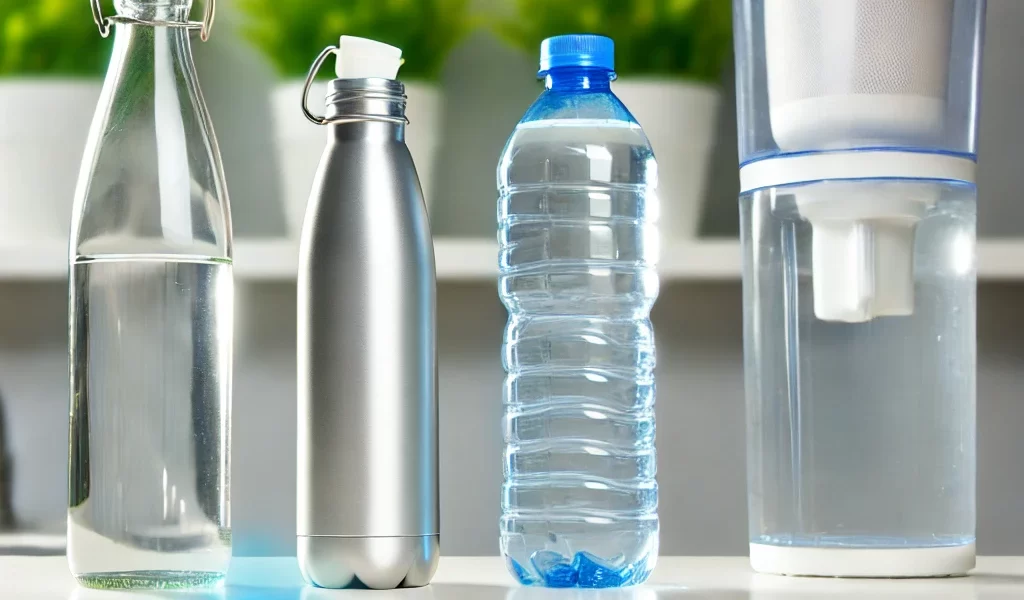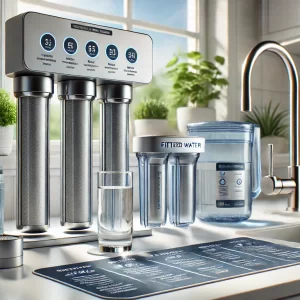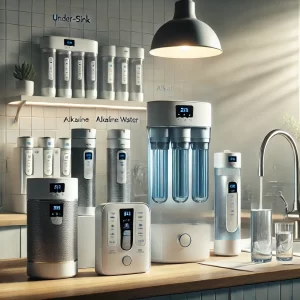The Hidden Dangers of Tap and Bottled Water: Which Water is the Best and Which is the Worst!
For many of us, bottled water has become a go-to for convenience and perceived purity. However, as research increasingly shows, the story behind bottled water is not so clear-cut. There are real health risks lurking in plastic bottles, and the options for staying hydrated have varying degrees of benefits and potential drawbacks. Today, I want to help you make an informed choice about your drinking water, considering the best options for your health and the planet.
Plastic Bottled Water: A Health and Environmental Risk
Plastic bottled water is often marketed as a safe, clean alternative to tap water, but the reality is much more complicated. A study from the State University of New York at Fredonia found that 93% of bottled water tested contained microplastics. These tiny plastic particles, which can also include harmful chemicals like BPA and phthalates, have been linked to inflammation, metabolic disruptions, and even reproductive issues.
Moreover, many bottled waters are simply repackaged tap water. In the U.S., it’s estimated that up to two-thirds of bottled water is derived from municipal sources. This means you could be paying a premium for the same water you get from your faucet—only with the added risk of plastic contaminants.
I personally recommend Mountain Valley Spring Water, which comes in glass bottles, free of harmful chemicals and leaching that occurs in plastic. Glass is the ideal packaging to ensure that water remains pure and untouched by contaminants. However, not everyone can afford premium spring water in glass, so it’s important to understand the pros and cons of other water types.
Spring Water: Nature’s Hydration Source
Spring water is often considered the gold standard for natural hydration. Sourced from underground springs, it’s naturally filtered through rock layers, which add beneficial minerals like magnesium, calcium, and potassium. These minerals are essential for optimal hydration, supporting everything from muscle function to bone health.
The key benefit of spring water is its mineral content, which naturally supports your body’s electrolyte balance. Studies have shown that mineral-rich spring water can improve hydration better than water with low mineral content. However, not all spring waters are created equal, so look for brands that test for purity and ensure the water is free from pollutants and chemicals.
Tap Water: A Mixed Bag of Benefits and Risks
In most developed countries, tap water is regulated and frequently tested for safety. In the U.S., for example, the Environmental Protection Agency (EPA) oversees municipal water supplies to ensure they meet safety standards. However, tap water is not without its risks.
Depending on where you live, your tap water may contain industrial contaminants like PCBs (polychlorinated biphenyls), plasticizers, and even hormones. For instance, a 2020 report by the Environmental Working Group (EWG) found that millions of Americans’ tap water contains potentially unsafe levels of toxic substances like lead, arsenic, and nitrates.
While tap water can be safe for everyday use in many places, it’s important to stay informed about your local water quality. You can request water quality reports from your municipality or invest in at-home testing kits to ensure your water is safe.
Filtered Water: A Reliable Middle Ground
Using a home water filtration system is one of the best ways to ensure your drinking water is free from harmful contaminants. Filters can remove a wide range of impurities, from chlorine to heavy metals like lead. According to a study from the University of Arizona, water filters can significantly reduce contaminants, including volatile organic compounds (VOCs) and some bacteria.
However, not all filters are created equal. Some only remove basic impurities like chlorine, while others can remove a more comprehensive list of toxins, including pharmaceuticals and heavy metals. It’s essential to choose a high-quality filter and replace it regularly, as outdated filters can accumulate toxins and potentially release them back into your water. Without proper maintenance, filters can actually do more harm than good.
Alkaline Water: A Trend with Caution
Alkaline water, with its pH level higher than neutral (typically around 8 or 9), has gained popularity for its potential health benefits, and I’m a strong advocate for it. Drinking water with a higher pH can help neutralize acid in the body, which may be especially beneficial for those dealing with acid reflux or other issues related to excess acidity. Some studies suggest that alkaline water can improve hydration, especially during intense exercise, by promoting better fluid retention compared to regular water. It’s also been shown to help balance the body’s natural pH levels, which can reduce acidity and support overall wellness.
Furthermore, alkaline water is believed to act as an antioxidant, helping to neutralize harmful free radicals in the body, potentially reducing inflammation and oxidative stress. Some research indicates that it may even aid in detoxifying the body, improving digestion, and enhancing energy levels.
However, it’s important to choose a high-quality alkaline water system that not only filters and alkalizes the water but also retains the essential minerals needed for hydration. These minerals are crucial for supporting muscle function, bone health, and maintaining proper electrolyte balance.
While there are benefits to drinking water that has been filtered through an alkaline system, it’s important to note that these systems often remove essential minerals during the alkalizing process. This can leave your water less beneficial for hydration than mineral-rich spring water. In fact, water that is overly alkaline can sometimes disrupt the body’s natural pH balance, especially in individuals with certain health conditions.
Moreover, research is still inconclusive about the long-term benefits of alkaline water, and most health professionals recommend getting your pH balance through a balanced diet rather than relying solely on alkaline water.
Which Water is Best for You?
For those who can afford it, I highly recommend Mountain Valley Spring Water in glass bottles for its purity, natural mineral content, and avoidance of harmful chemicals. If this option is out of reach, a high-quality water filter paired with a reusable glass or stainless steel bottle can offer significant health benefits without the environmental and health risks associated with plastic bottles.
Tap water is a convenient option, but be sure to research your local water quality and consider filtration if there are concerns about contamination. As for alkaline or ionized water, proceed with caution—these systems can filter and alkalize, but they may also remove key minerals that your body needs for optimal hydration.
So the choice of drinking water is more than just a matter of convenience. It’s a choice that affects your health, the environment, and your overall well-being. By making informed decisions about what you drink, you can protect yourself from harmful chemicals while staying hydrated.




















Comments are closed.